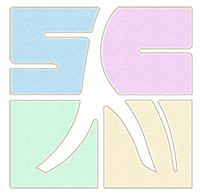
Literary biography enjoys a prominent place in life writing and this issue provides five articles on this study. The debate on the biography of William Shakespeare has been heated throughout the past 100 years. According to the American scholar Murray M Schwartz, William Shakespeare, the writer, is a “pervasive yet elusive person.” He presents his own interpretation on the essence of this debate in his “Authorizing Shakespeare: Problems of Biography”. The scarcity of Shakespeare’s life materials adds to the difficulty of life-writing for him. In some cases, however, some writers, in particular modern writers, have left voluminous works, including autobiography, letters, diary, travelogue, etc. Their self permeates their fictions, prose and dramas, yet such materials often contradict each other. Therefore, the proper use and selection of these materials is a thorny problem in the life writing and set the stage for critics. Dai Congrong analyzes the connections between James Joyce’s experience and personality and the characters in his works to explore the autobiographical element in his novels and his transition from a modernist to a postmodernist. Franz Kafka the great modernist is a popular subject, on whom both Zhao Shankui and Jiang Zhiqin elaborate to explore the biographical value. Jiang Zhiqin’s “Collision and Symbiosis” reveals through Kafka’s office writing-work how the writer amalgamates his double identities, i.e. the writer and the clerk. Zhao Shankui introduces Western scholars’ three interpretations of Kafka’s Letters to Felice from different perspectives. The French scholar Jeanyves Guérin specializes on Albert Camus. He peruses the recent biographies on Camus in France to examine the role that the subject’s literary works plays in literary biography and discuss the possibilities of using biography in literary research. In brief, these studies expand the horizon of literary biography from different perspectives.
The section of theory study also covers a great variety of topics. As a traditional form of life writing in China, biographical chronicle is still employed by biographers till now. Sang Fengkang’s “How a Complete Biographical Chronicle Comes into Being” examines Hu Shi’s case and proposes new requirements on the compilation of chronicles from the modern vantage point. In terms of literary history, the genres of novel and life writing have been borrowing from each other. Wang Kan discovers from the stylistic perspective in his “The Form of Biography and Rhetorics of Modern Chinese” that the parody and mimesis of the biographical form are ubiquitous in all modern Chinese novels. The prosperity of film biography or biopic gives birth to a new issue in the biographical theory. Some scholars contend that many biopics are in fact feature films. They are produced from market rules and box office revenue or rating. These factors account for the imaginary and fictitious plots and details that permeates biopics. We hope to conduct a discussion on this issue, heralded by Yuan Tangzheng’s “Contemporary Chinese Biopics under the Impact of Commercial Movie Aesthetics: A Case Study of Mei Lanfang and Huo Yuanjia”.
Zou Guangsheng responds to “Comparative Life writing”, a section that opened in the last issue, with his study of “Confucius and Socrates”. Ever since the New Culture Movement in the early twentieth century, Chinese scholars have showed great interest in comparing the two colossi from a great variety of aspects. Zou focuses on values and personality, drawing on the previous researches on this issue home and abroad with eyes on the status quo of China’s academia. We welcome new opinions on conventional topics and expect your contribution to this section.
Liu Tao’s exploration of the individual perspective in the grand history in An Autobiography of Wang Meng, whereas Wang Yukuo analyzes the concern about the racial issue and the fate of black people in Du Bois’s Autobiography Dusk of Dawn. Zou Lanfang’s “Imaginary Homeland” argues for one of the characters of modern Arabic autobiography, i.e., the emphasis on the childhood. The three studies demonstrate their authors’ prudence and deserve a good reading despite the length.
A well-conducted research on the subject is the key to the whole process of life writing and the quality of life writing depends on further, deeper study of the subject, so the column is designed to give impetus to this spirit. The last hundred years witnessed voluminous life writing on the Chinese great modernist writer Lu Xun. Shen Weitang clarifies a fact out of a thorough examination: how Lu Xun’s title as a “revolutionary artist” was made. While Sergey Nechaev, a Russian in the nineteenth century, may be strange to our readers, he had been various prototypes in novels by Nikolay Gavrilovich Chernyshevsky, Ivan Turgenenv, and Fyodor Dostoyevsky. Through his analysis in “Nechaev in History”, Dong Xiao intends to reveal the complexity and ambivalence of Russians’ national character. Both articles make discoveries from the ignored materials.
The examination of archival evidences is closely related to subject study. Yin Dexiang’s “The Identification of ‘Ju Zhong Men Wai Han (In-Game Outsider)’ and ‘Liang Xi Zuo Guan Lao Ren (An Old Man Sitting at Ease by Liang Brook)’ ” conducts such work on the two books by Zhang Zuyi, a diplomat and calligrapher of Qing Dynasty to put right mistakes by early scholars. The Dutch scholar Daan Schneider explores the Dutch life writing on modern Chinese people on the basis of a wide variety of materials. Maybe their work will not attract much attention, but the spirit of prudence and devotion is essential in the life writing scholarship.